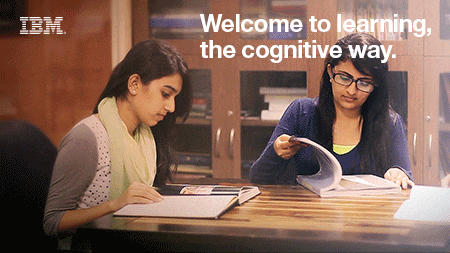
Welcome to teaching, the Cognitive way
Cognitive computing, with its ability to process vast volumes of both structured and unstructured data makes it an immensely useful technology in the classroom

Does “school” recall an image of orderly rows of children, copying whatever the teacher writes on the blackboard? This picture might well be on its way to becoming obsolete as technology increasingly extends its reach into classrooms. The classroom of the future is likely to be intuitive and cognitive in nature.
For decades, education has followed a ‘one size fits all’ approach with little or no room for students who need different styles or formats of instruction. At the same time, teachers have had to rely on their observations to identify student challenges and put together any form of student data for reference. There has been no means of getting a holistic view of students and understanding classroom patterns better. All that is set to change.

Cognitive computing, with its ability to process vast volumes of both structured and unstructured data makes it an immensely useful technology in the classroom. Cloud-based cognitive systems in the classroom will help collect and leverage student data to gain usable insights into student behaviour. This in turn will help teachers to understand their students better, identify students who need special attention or interventions and work on specific plans to help them. Such a cognitive system can also help identify each student’s interest areas, and preferred learning styles so that the institution can offer personalised learning modules. There is also a scope for designing interactive courses with the ability to answer questions in real time. The analysis offered by cognitive systems will also have significant impact on educational research.
IBM Watson™ is already working with schools like Gwinnet County Public School to improve their students’ learning experience. As the world grows more technology savvy, more schools are likely to follow suit and usher in a new dawn for education.
To learn more about how cognitive is being used and will impact learning methods and the future classrooms, attend the IBM outthink tour 2016.
X




